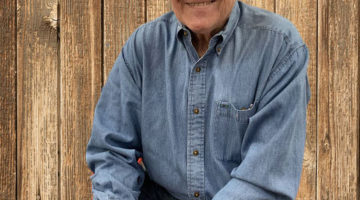2011 Movie Recap: Part 1 of 5: A Year in Fantasy
 As we have discussed before on these pages (most notably in a review for the abysmal 2007 snoozer The Golden Compass), fantasy films, like science-fiction films, need to be grounded in a contextually credible reality to work. It cannot be all foreign lands, mythical creatures, dark overlords, and valiant heroes, no matter how special the effects. Beyond the creativity required to derive from the imagination people and places that have not and could not exist in our world, first, there must be established a firm basis to believe.
As we have discussed before on these pages (most notably in a review for the abysmal 2007 snoozer The Golden Compass), fantasy films, like science-fiction films, need to be grounded in a contextually credible reality to work. It cannot be all foreign lands, mythical creatures, dark overlords, and valiant heroes, no matter how special the effects. Beyond the creativity required to derive from the imagination people and places that have not and could not exist in our world, first, there must be established a firm basis to believe.
That said, in 2011, the finale of the beloved Harry Potter saga, Harry Potter and the Deathly Hallows: Part II, had a distinct advantage over the competition. And it is precisely what makes the film work so effectively that had so many other submissions struggling.
The advantage held by the last of these eight more or less wonderful installments was that even as the opening images apparated onto the screen (Dobby’s beachside grave, Voldemort wielding the Elder Wand), we already believed. There was no need to convince us of the peril Harry was in or the rules he would need to operate under to save Hogwarts and his friends. We knew the stakes; we felt the gravity of the situation. We had been with Harry since his first flying lesson and would summon the courage to follow the boy who lived till the bittersweet end. All that was left for David Yates (director of the last four and likely four best Potter films) to do was turn in another bold, clever, and pathologically dense rendering of J.K. Rowling’s tale. And he admirably does what was expected. While swept up in the desperate search for Horcruxes, Yates allows us to feel once more as though we are very much in the middle of things, but, alas, it was a trick and a false hope, because in the end…it was, irrevocably, THE END.
 Harry, Ron, Hermione, Luna, Longbottom, McGonagall, Lupin et al. take a last stand against Voldemort amid the rubble and losses of Hogwarts. The stand is grand, fierce, and large in scale but not over the top or self indulgent. Nearly every character – and everyone has their favorites – is given their due; a defining, respectful farewell moment of triumph or tragedy. The performances have been getting better each time out (by leaps and bounds in regard to leads Daniel Radcliffe, Rupert Grint, and Emma Watson) as the actors are allowed to (mature), develop, and further understand their roles, and in this film there are some real powerhouses. Ralph Fiennes as Voldemort is wickedness personified and the performance is overlooked by critics mainly because the makeup makes it feel as if the villain is being played by, well, Voldemort. Helena Bonham Carter is likely the most underrated actress working today. Her embodiment of the tantalizing Belatrix Lestrange (and specifically her playing Hermione disguised as Belatrix) is nothing short of amazing. Alan Rickman closes the book on his memorable run as the conflicted Severus Snape and it is redemption and poetry.
Harry, Ron, Hermione, Luna, Longbottom, McGonagall, Lupin et al. take a last stand against Voldemort amid the rubble and losses of Hogwarts. The stand is grand, fierce, and large in scale but not over the top or self indulgent. Nearly every character – and everyone has their favorites – is given their due; a defining, respectful farewell moment of triumph or tragedy. The performances have been getting better each time out (by leaps and bounds in regard to leads Daniel Radcliffe, Rupert Grint, and Emma Watson) as the actors are allowed to (mature), develop, and further understand their roles, and in this film there are some real powerhouses. Ralph Fiennes as Voldemort is wickedness personified and the performance is overlooked by critics mainly because the makeup makes it feel as if the villain is being played by, well, Voldemort. Helena Bonham Carter is likely the most underrated actress working today. Her embodiment of the tantalizing Belatrix Lestrange (and specifically her playing Hermione disguised as Belatrix) is nothing short of amazing. Alan Rickman closes the book on his memorable run as the conflicted Severus Snape and it is redemption and poetry.
As the curtains are drawn, we are given closure and even some hope for the future. We are back in King’s Cross Station. It almost feels like the first time, when so much was ahead of us. This time, though it is still compelling to see young, wide-eyed children departing to learn witchcraft and wizardry, we observe with a heavy heart, because we know it is also goodbye.
None of the shameless fawning above can be applied to three other attempts to make hay in the fantasy genre over the past twelve months. Not surprisingly, the varying degrees of success for these other major, big budget films correlates with the public’s familiarity with their source material.
Like Harry Potter, Captain America is a character we have, to an extent, all grown up with. Whether we’ve read the comics, seen the various movies or cartoons, or simply have general pop culture awareness, the man with the blue winged mask and the target-star shield could easily be identified in a lineup. Plus, he is named Captain America; likely the cheesiest, most brazen, in your face superhero title of all time. It’s downright embarrassing to root for the guy, but how could you not? He was created in 1940 as an American war hero to support the actual G.I.s battling Nazis in Europe. That’s a fair excuse for the bravado.
As Marvel Studios continues to produce its own movies and mine its catalogue for potential hits (and now with the ambitious goal of beginning an Avengers series, a team compiled of heroes from four different solo pictures), the previously ambiguous Captain America gets his turn for cinematic adaptation. But unlike Harry Potter, Captain America, while familiar, likely did not mean anything to us as the opening credits rolled. For obvious cultural reasons, he was not a character that captured the imagination of a 21st century general public.
Turns out Captain America: The First Avenger is thoroughly watchable and winning in its own undemanding way. Despite limitations in terms of pure unavoidable silliness, Joe (The Rocketeer) Johnston’s film embraces its corny heart and let’s its geek flag fly, all while maintaining a sufficient wink-wink self awareness. It wants to be nothing more than charming and entertaining (and set the groundwork for The Avengers of course). Extra points are earned for sound art-direction and a convincing throwback quality (most of the film takes place in the 1940’s, before America was a jaded, spoiled mass of fame-obsessed exhibitionists, and it's a nice place to visit). What the film can never overcome, though it mightily tries via superior score, costumes, and atmosphere, is the inanity of its premise.
 Steve Rogers (geez, his name is even comma inducing), is a scrawny kid with the face of Chris Evans who dreams of serving his country and enlisting, but he’s just lacking the physical requirements. So a government experiment transmogrifies him into a bulked up super solider. And, after a brief vaudeville career, away he goes, saving the day. Chris Evans, a bland actor who less convincingly played wise-cracking Johnny Storm/Human Torch in the Fantastic Four films, excels here at playing a bland superhero. Captain America is a hero that by definition must be hokey as hell and the movie wisely and sensitively chooses to keep him edgeless. He’s just a guy who loves America; who sincerely wants to fight its enemies; who soldiers for the good ol’ red white and blue. Sometimes, Captain America: The First Avenger argues, that’s enough. Though his nemesis in the film is a mystic evil scientist – a disfigured, or rather discolored, victim of his own experimentation – named Red Skull, played by an unrecognizable Hugo Weaving, the movie’s most challenging adversary is its origin.
Steve Rogers (geez, his name is even comma inducing), is a scrawny kid with the face of Chris Evans who dreams of serving his country and enlisting, but he’s just lacking the physical requirements. So a government experiment transmogrifies him into a bulked up super solider. And, after a brief vaudeville career, away he goes, saving the day. Chris Evans, a bland actor who less convincingly played wise-cracking Johnny Storm/Human Torch in the Fantastic Four films, excels here at playing a bland superhero. Captain America is a hero that by definition must be hokey as hell and the movie wisely and sensitively chooses to keep him edgeless. He’s just a guy who loves America; who sincerely wants to fight its enemies; who soldiers for the good ol’ red white and blue. Sometimes, Captain America: The First Avenger argues, that’s enough. Though his nemesis in the film is a mystic evil scientist – a disfigured, or rather discolored, victim of his own experimentation – named Red Skull, played by an unrecognizable Hugo Weaving, the movie’s most challenging adversary is its origin.
A bit less well known, but certainly embedded in our collective consciousness (if not due to the Tim Burton 2001 dreadful remake) is The Planet of the Apes series and its offspring. Between the image of the Statue of Liberty buried in sand and Charlton Heston bellowing for an unkempt chimp to unhand him, we are, as they say in the BM, holding. However, again, unlike with HPATDHPII, but like CATFA, our awareness of the material does not automatically translate into our caring about it. Director Rupert Wyatt must not only craft a thoughtful, exciting, and competent film, but he must in so doing make us invest in the fate of these apes and their planet ruling destiny.
The good news for those having trouble letting go of Potter is: Draco Malfoy was cast in Rise of the Planet of the Apes! Here he plays a muggle very much like Draco Malfoy. (Who would have thought that kid would be typecast?) Instead of torturing Harry, he is torturing apes. One of those apes is named Caesar and Caesar is evolving (and played miraculously by Andy Serkis of Gollum fame). While all other Planet of the Apes movies introduce us to a world where apes walk, talk, and enslave humans, Rise seeks to show us how it all began. Only in a world where James Franco portrays Will Rodman, a brilliant biochemist working for a pharmaceutical company, can apes get the best of mankind.
 Rise of the Planet of the Apes actually had potential due to our instinctual paranoia regarding losing our intellectual dominance over either animals or machines. The film even excels in moments, particularly when the relationship between the caged primates is explored. Apes, with their human expressions, naturally draw us in to their joy and hurt; and their mistreatment and emotional trauma stings. Manipulative computer animated apes aside, Wyatt's movie cares about story and nuance, but it only does so in waves. For every shot of Caesar searching his developing soul for meaning, there is a generic scene depicting some greedy corporate honcho pushing the project forward without ascertaining the risks. It just seems at times that Rise has too much of a story to tell and must rely on sudden implausible plot devices to keep it moving. It's the kind of movie where years are supposed to have gone by, but since everyone looks exactly the same, the shift throws the viewer off balance.
Rise of the Planet of the Apes actually had potential due to our instinctual paranoia regarding losing our intellectual dominance over either animals or machines. The film even excels in moments, particularly when the relationship between the caged primates is explored. Apes, with their human expressions, naturally draw us in to their joy and hurt; and their mistreatment and emotional trauma stings. Manipulative computer animated apes aside, Wyatt's movie cares about story and nuance, but it only does so in waves. For every shot of Caesar searching his developing soul for meaning, there is a generic scene depicting some greedy corporate honcho pushing the project forward without ascertaining the risks. It just seems at times that Rise has too much of a story to tell and must rely on sudden implausible plot devices to keep it moving. It's the kind of movie where years are supposed to have gone by, but since everyone looks exactly the same, the shift throws the viewer off balance.
Another problem – and some may not see it this way depending on their preference of rating – the film is not bloody enough. These are immensely strong wild animals on the loose. Rise would have been the visceral experience it aims to be if the studio would have green lit the necessary violence instead of playing it safe. When Rodman confronts Caesar and his revolutionary horde of apes, he should be much more afraid. We should taste his fear. Instead, he acts like James Franco hosting the Oscars (no sweat, man).
The end is similarly unsatisfying, as it seems to put the movie's promise of a sequel over the quality of itself. Unless one is suffering from the dementia which Rodman is tasked with curing, it would never compute that the Red Woods of San Francisco could serve as an ecologically sound habitat for dozens of apes. For a film essentially about intelligence, Rise often does not respect its audiences'.
 Unlike our other three specimens, Cowboys and Aliens gets points for originality. The film about an hombre with amnesia and a powerful laser latched to his arm in 1873 Arizona is not based on any well known movie, book, or comic. Some might say it is based on a 2006 graphic novel by Scott Mitchell Rosenberg that had very few ticket buyers walking into the theatre knowing who or what to root for. Unfortunately for audiences, it would be more apt to say that Cowboys and Aliens, as the title cheekily suggests, is based on nothing more than pretension and the false theory that a gimmicky concept suffices to make a movie work. While we were hoping and rightly expecting some old school magic from the director of Iron Man, the director of Iron Man 2 showed up. Jon “Gutter” Favreau is clearly a capable craftsman and a talented ringmaster on set, but he has been credited with two films in a row now that have been too big for their britches. And because of the prestige of the projects, both were severe disappointments to anticipating moviegoers. Even worse, the writers of Lost and Fringe, along with Steve Odekerk were brought in to work on or save the convoluted mess that is Cowboys and Aliens, and evidently they did not have their thinking caps screwed on tightly enough. More frustrating yet, the enviable acting tandem of Daniel Craig and Harrison Ford, winds up for naught.
Unlike our other three specimens, Cowboys and Aliens gets points for originality. The film about an hombre with amnesia and a powerful laser latched to his arm in 1873 Arizona is not based on any well known movie, book, or comic. Some might say it is based on a 2006 graphic novel by Scott Mitchell Rosenberg that had very few ticket buyers walking into the theatre knowing who or what to root for. Unfortunately for audiences, it would be more apt to say that Cowboys and Aliens, as the title cheekily suggests, is based on nothing more than pretension and the false theory that a gimmicky concept suffices to make a movie work. While we were hoping and rightly expecting some old school magic from the director of Iron Man, the director of Iron Man 2 showed up. Jon “Gutter” Favreau is clearly a capable craftsman and a talented ringmaster on set, but he has been credited with two films in a row now that have been too big for their britches. And because of the prestige of the projects, both were severe disappointments to anticipating moviegoers. Even worse, the writers of Lost and Fringe, along with Steve Odekerk were brought in to work on or save the convoluted mess that is Cowboys and Aliens, and evidently they did not have their thinking caps screwed on tightly enough. More frustrating yet, the enviable acting tandem of Daniel Craig and Harrison Ford, winds up for naught.
The concept undoubtedly makes for a good pitch, likely the draw that brought in such high end talent. You see you take a formula Western, and then you take an Alien Invasion Picture, and, you see, you mix up the two and have the aliens – you get it? – the aliens coming after the cowboys and Indians…or something. And the beauty of it is, we don't need to worry about the story because we have Jon Favreau directing and Harrison Ford is attached!
The story appears to have been stitched together on the fly. No producer or casting agent seems to know what to do with the strange yet engaging Paul (There Will Be Blood) Dano, but here he is lost playing Ford's slimy abducted son. From there Craig and Ford are off on horseback, tracking superfast aliens and their ships, and occasionally somehow catching up to them. Throw in Olivia Wilde as a befuddling anomaly who “explains” what the aliens are doing here (and it still makes zero sense), and we sink in our chairs waiting for the embarrassment to end.
The saddest aspect is the wasting of a Ford appearance in an allegedly big on-screen adventure. The man is no longer treated as an actor, but as a monument to all the roles he's inspired us with over the years.
Watching Harry Potter walk away is nearly as depressing as witnessing the aging of Mr. Ford and his fading career. Because movie-going is really all about comfort and belief, and we believe in Harrison and Harry. Even though we know that time must pass for us, we wish it would not for those heroes we love. Sometimes fantasy can't mask reality.
Read more –> 2011 Movie Recap Part 2 – WOMEN, 2011 Movie Recap Part 3 – FATHERS









